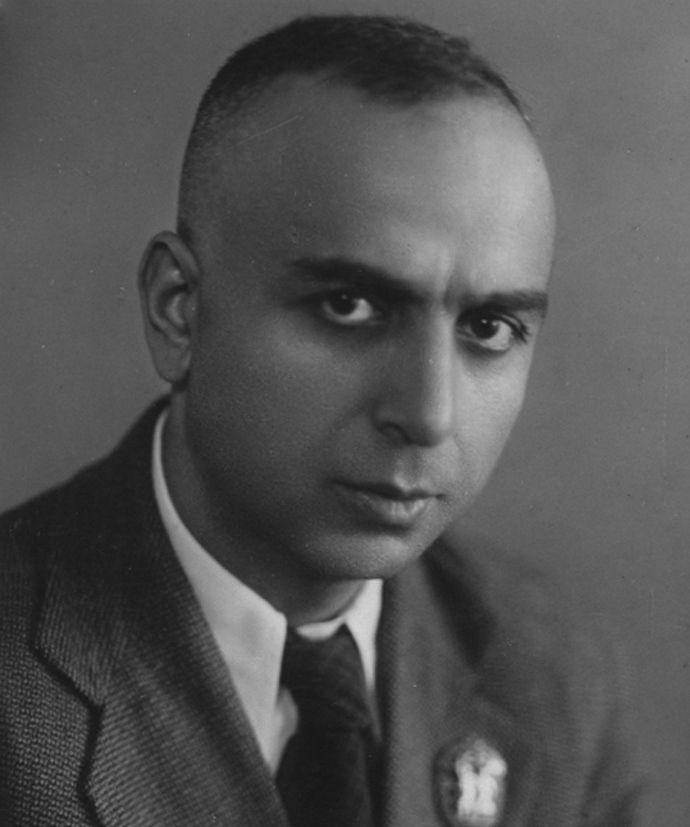Azmaiparashvili Shalva

Shalva Azmaiparashvili (b. January 7, 1903, Tbilisi – d. May 17, 1957, Tbilisi) was a conductor and a composer, Honored Art Worker of Georgia (1941), laureate of the Stalin Prize (1948).
In 1930, he graduated from the Tbilisi State Conservatoire (class of Professor A. Ilinsky), composition (class of S. Barkhudaryan) and conducting (class of Professor M. Bagrinovski); In 1933, he finished his postgraduate studies (under the guidance of professors A. Gauk and E. Mikeladze). In 1923–1928, he played in wind and symphony orchestras. Since 1932, he was the conductor of the Tbilisi Opera and Ballet State Theatre, and in 1938–1952, he was the principal conductor. In 1943–1953 he led the Georgian Radio Symphony Orchestra and in 1954–1957 — the Georgian State Symphony Orchestra. Many Georgian operas were staged under the musical direction of Azmaiparashvili: Darejan Tsbieri by M. Balanchivadze, Keto and Kote by V. Dolidze (both 1937), Story of Tariel (1946; USSR State Prize, 1947) by Sh. Mshvelidze, Little Kakhetian (1943) by I. Gokieli, Call of the Mountains (1947) by D. Toradze and others. Azmaiparashvili's musical works include the symphonic poem To Kvareli Mountains (1939), orchestral suite Pictures of Old Tbilisi (1941), a symphony (1945), vocal-symphonic poem Kartli (1946), the opera Khevisberi Gocha (1951), musical comedy What You Have Seen, You Will not See Again (1952) and others.
He had received state prizes.
Literature: ჩ ხ ი კ ვ ა ძ ე გ., საქართველოს საბჭოთა კომპოზიტორები, თბ., 1956; Д о н а д з е В. Г., Очерки по истории грузинской советской музыки, ч. 1 (1921 – 1945), Тб., 1975; К в и р и к а д з е Т., Массовая песня, კრ.: Грузинская музыкальная культура, М., 1957.
G. Toradze


